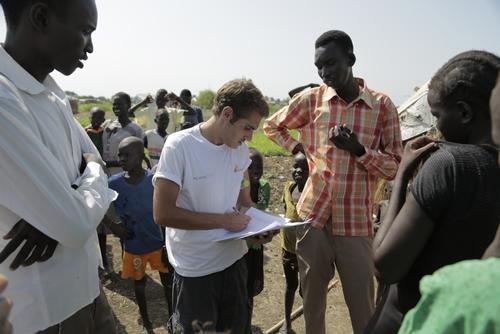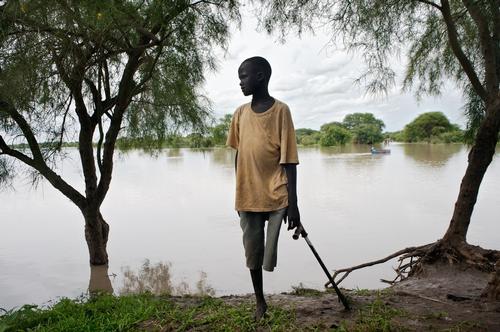Basel – Tens of thousands of people will continue to die of snakebite unnecessarily unless the global health community takes action to ensure treatment and antivenom is made available, warns Médecins Sans Frontières (MSF) ahead of a symposium to take place in Basel, Switzerland on Tuesday 8 September.
Snakebite is a major killer yet remains one of the world’s most neglected public health emergencies as global health actors show worryingly little interest in the issue. A clear focus on adequate treatment and diagnostics is needed to avoid countless deaths.
Each year, an estimated five million people worldwide are bitten by snakes, of whom 100,000 die and 400,000 are permanently disabled or disfigured. In sub-Saharan Africa alone, 30,000 people die from snakebite every year and an estimated 8,000 undergo amputations. The number of victims is likely to rise as existing stockpiles of one of the most effective antivenoms for sub-Saharan Africa are due to expire in June 2016.
“We are now facing a real crisis so why do governments, pharmaceutical companies and global health bodies slither away when we need them most?” said MSF Snakebite Medical Advisor, Dr Gabriel Alcoba. “Imagine how frightening it must be to be bitten by a snake - to feel the pain and venom spread through your body – knowing it may kill you and there is no treatment available or that you can’t afford to pay for it?”

MSF increasingly treats snakebite in its field programmes. This includes 300-400 snakebite victims per year in Paoua, the Central African Republic; and over 300 in Agok, South Sudan in 2014. Many of the victims are children.
Snakebite mainly affects people living in rural areas. With no health facilities nearby, and unable to afford expensive treatment, many either turn to traditional healers or don’t seek care at all. This suggests that the number of victims is probably higher than officially reported. If available, antivenom treatment can cost up to US$250-500 per victim, representing the equivalent of four years of salary in the countries concerned. Subsidizing antivenom costs so that patients pay little to nothing is crucial to improve access to this life-saving treatment.
Fav-Afrique, produced by French pharmaceutical company Sanofi, is the only antivenom that has been proven safe and effective to treat envenoming from different types of snakes across Sub-Saharan Africa. There are a few alternative similar antivenom products in Africa, but their effectiveness and safety have not been properly established yet. Sanofi ceased production of Fav-Afrique in 2014 and the last batch will expire in June 2016. No replacement product will be available for at least another two years, translating into more needless death and disability.
"Until a replacement product to Fav-Afrique is available, we hope that Sanofi can start to generate the base material needed to produce Fav-Afrique, and then find suitable opportunities within their production capacity to refine it into antivenom," said Julien Potet, Neglected Diseases Advisor for MSF’s Access Campaign.
The World Health Organization (WHO) should play a leading role to tackle snakebite as a public health issue, but is still considering it as a “neglected condition with no formal programme,” despite the high mortality levels.
The global health community, donors, governments, and pharmaceutical companies should accept responsibility for their share of the neglect of snakebite as a public health emergency and take immediate, appropriate and collaborative action, concludes MSF.



